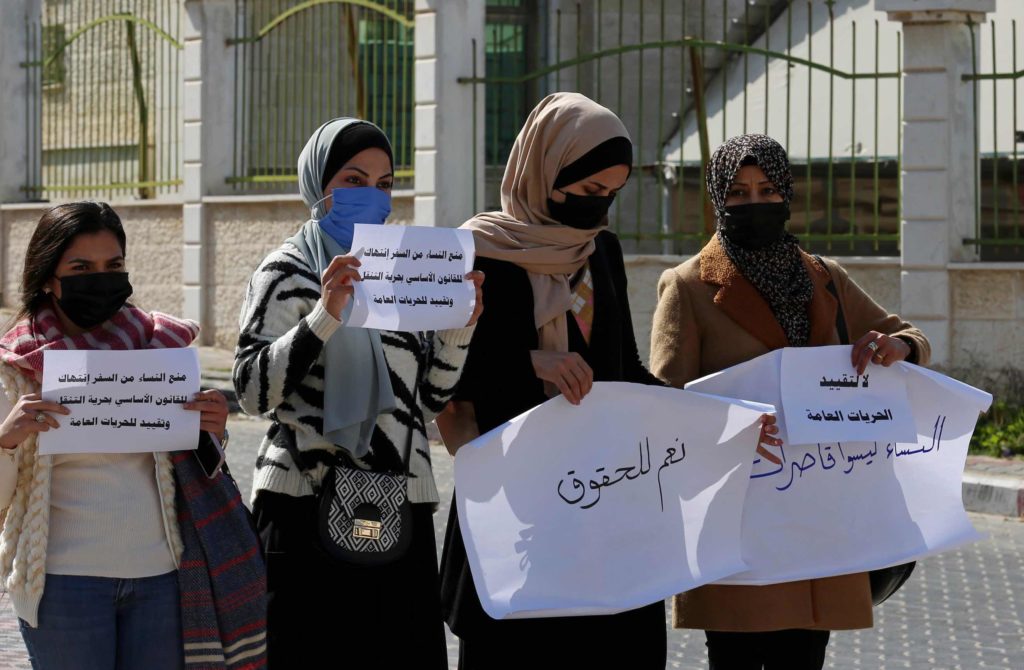
Conditions in the Arab world are bad, actually very bad. It is plagued by a religious and tribal culture that has for centuries wiped clean the Arab mind at the hand of regimes clothing themselves with religion for the purpose of controlling and monopolising power. They did this via puritanical clerics who did not engage their intellects nor alter their views without the say-so of rulers bent on promoting their interests and controlling people.
IT IS NOT THAT the time has now come for change – that has long been the case – the point is that this change must be initiated. Education and religious education in general, and indeed society as a whole are in need of reform. Religious institutions, ministries of endowments, the Sharī‘a courts, the shaykhs and so-called religious scholars need not so much to be reformed, as to be abolished altogether. The religious heritage – based as it is on words and deeds attributed to the Prophet, and on the hadith of al-Bukhārī, on the four imams and everyone and the works of all the fuqahā’ right up to Al-Azhar must be read as products of their time for good or for bad, and not taken as a foundation for the faith. Many of these issued fatwās in favour of the ruling political authority and prevailing patriarchal values, or to benefit of the wealthier classes. Heaven, for the poor, was in the Afterlife, and their misery in this life below was of no matter.
The Qur’an is a historical text, something that was revealed in a different place and a different time. The ‘scientific’ references it may contain, its recommendations or prescriptions, what it permits or prohibits, the productive laws that it may contain, or the historical or symbolic stories it features in its pages – these do not make it a scientific book, an authority, a public encyclopaedia nor a constitution. It may well be seen as having several faces, as ‘Alī ibn Abī Ṭālib is reported to have said.
Interpretations should take into account things as they actually are, and not necessarily on the basis of the original texts
Interpretations should be modern in conception and take into account things as they actually are, and not necessarily on the basis of the original texts. For example, it should be clarified that to have faith or to be an atheist is something optional, not a compulsion, and that fighting is legitimate only for self-defense, not as an act of aggression in the name of conquest or to propagate Islam. It should also be clarified that polygamy is to be prohibited and that women’s share of inheritance is to be the equal of men’s.
There are, of course, issues of faith or appropriate behaviour and ethics – most of these having remained the same since the beginning of civilization – and there are matters of sound exhortation, ways and means of dealing with others, of respecting their rights and the performance of duties – all of these present among the ancient Egyptians, the civilizations of Mesopotamia and Yemen, as well as in the Gospels and the texts of the Qur’ān. Such things are well-nigh absolute and apply to all eras and cultures of all places and times. But when it comes to laws, regulations and transactions, these change as societies change and develop. What was natural and acceptable in earlier ages – and that includes the seventh century – is neither fair nor acceptable today.
Would it be acceptable, for example, to chop off the necks or limbs of transgressors, something which was fairly normal in the past? The shaykhs may say that the intention here is to deter the transgressor and put him to death, so that it would not be necessary to cut off his arms and feet but simply execute him in some way, such as a firing squad for example. In their ignorance they do not acknowledge the existence of circumstantial verses.
Is it really acceptable to cut off the hand of the thief? (and that is if the interpretation of the verse is correct; some hold that qaṭ‘ – ‘cutting’ – does not equate to amputation).[1] Is it acceptable for a woman to inherit only half the share of the male (such as the faulty interpretation made by most commentators who do not differentiate between the meaning of the words naṣīb ‘share’ and ḥaẓẓ ‘fortune’ and seize on the verse which stipulates that men have ‘a share’ and women have ‘a share’[2]) and this at a time now when women work and provide support much like men, and not as in olden times when the man was the breadwinner or in many cases the raider who brought back booty?
Change is definitely coming sooner or later, but people have to overcome their fears and break their long-standing silence
And what about the woman’s ‘waiting period’[3] after the death of the husband or following a divorce? Is it necessary for a woman to wait a certain time before remarrying if she is concerned about mixing lineage, given that today a DNA examination can show the child’s parentage in a matter of hours? Do women, or even men, accept polygamy (if the interpretation and the current practice are actually correct on this) or the guardianship of men over women and the right to include children in this equation following a divorce or after the mother has ceased to nurse? Or that woman are not to travel or leave the house without the husband’s permission? Or that major disaster which is the marriage of minors? There are dozens of matters approved by the so-called Sharī‘a and which are based on circumstantial texts in the Qur’ān, or on incorrect interpretations or fatwās of the so-called religious scholars.
Time has now moved on and there are many (irresponsible) figures in a position of responsibility, many pro-regime jurists and others, who engage in takfir, accusing others of apostasy and who attack any thinker or writer daring to critique religious thinking or practices, such as Ṣādiq Jalāl al-‘Aẓm who was prosecuted, Muḥammad ‘Āyid al-Jabrī, and Farag Fouda who was assassinated, and Naṣr Ḥāmid Abū Zayd who was forcibly separated from his wife on the pretext that he was an apostate or a non-Muslim, and Muḥammad Shahrour and others. They have even pronounced takfir on writers such as Taha Hussein and Naguib Mahfouz, people who criticized religious thinking as something shameful.
It is perhaps necessary to recall that all of these were Muslims and even believers in Allah. Those who call for improving the rights of women, for example, and for their equal status with men are similarly attacked and written off as renegades who do have no fear of Allah and His Messenger, and they are thus unconsciously offending God. Is it therefore reasonable to believe that Allah gets angry because a woman takes a share of her father’s inheritance equal to the share of her brother – Allah who is ‘the just, the Most Gracious, the Most Merciful’?

Suggested Reading
There are many – and I am sure most of these are Muslims by birth – who actively support the statements and practices of those who claim to be protectors of the faith from foreign invasion, from infidels, apostates and haters of Islam all manner of similarly empty charges. There are manifold unjust and flawed practices that are dressed up as religion, especially those regarding women, such as practices that deprive them of their inheritance or force them into marriage – at times while they are still infants – or force them to wed a man with already more than one wife, and many other practices. It is unfortunately the case that demand for equitable civil laws that protect everyone, remains weak.
Reform and religious change are clearly necessary, but these are only possible when there is a change or a reform of the illegitimate regimes ruling in Arab and Islamic countries, regimes that rely on the prevailing religious conceptions and their proponents, and upon foreign elements working for their interests in alliance with wealthy classes. Change is definitely coming sooner or later, but people have to overcome their fears, break their long-standing silence and decide who, and what type of system (whatever that may be) will be able to serve them to attain a free, dignified and decent life. Methods of peaceful change are available; people have to begins with some first steps.
[1] The author is referring to Qur’ānic injunctions such as: As for the thief, both male and female, cut [f-aqṭa‘ū] their hands. It is the reward of their own deeds, an exemplary punishment from Allah. Allah is Mighty, Wise. [Qur’ān V (al-Māida), 38. (Ed.)
[2] The Qur’ānic verses in question are, for example: لِلذَّكَرِ مِثْلُ حَظِّ الْأُنْثَيَيْنِ To the male the equivalent of the portion [ḥaẓẓ] of two females [Qur’ān IV (al-Nisā’), 11] and لِلرِّجَالِ نَصِيبٌ مِمَّا تَرَكَ الْوَالِدَانِ وَالْأَقْرَبُونَ وَلِلنِّسَاءِ نَصِيبٌ مِمَّا تَرَكَ الْوَالِدَانِ وَالْأَقْرَبُونَ Men shall have a portion [naṣīb] of what the parents and the near relatives leave, and women shall have a portion [naṣīb] of what the parents and the near relatives leave [Qur’ān IV (al-Nisā’), 7]. (Ed.)
[3] The ‘waiting period’ (‘idda) is the period that sexual intercourse is prohibited following a woman’s divorce or widowhood. See Glossary: ‘Idda’. (Ed.)
Main image: Women protesting in February 2021 against the Hamas-dominated Sharī‘a Judicial Council banning women from travel.
